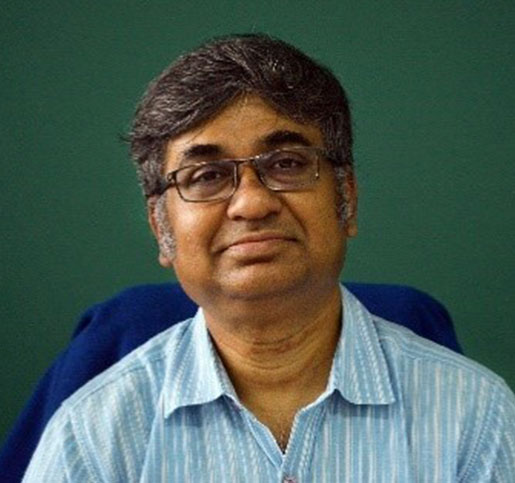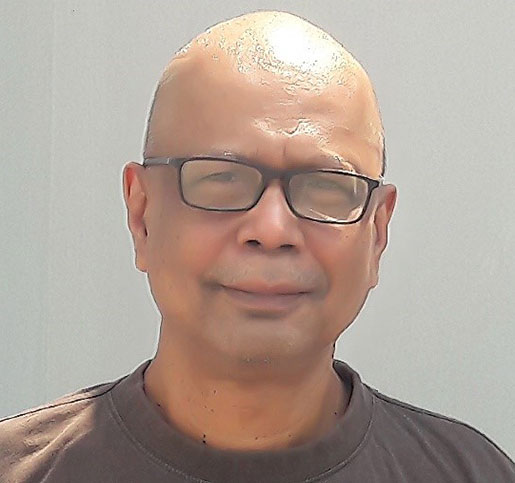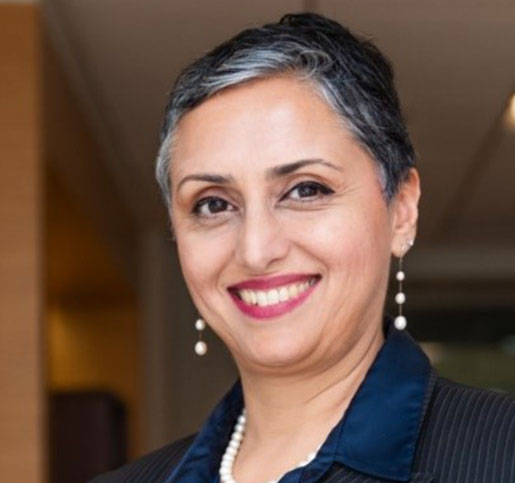
Dr. Joy Sen
ProfessorDept. of Architecture and Regional Planning, Indian Institute of Technology, Kharagpur
Dr. Joy Sen is currently Professor, Department of Architecture and Regional Planning, Indian Institute of Technology, Kharagpur with 27 years of teaching experience and 9 years of industrial experience. His master's degrees are from College of Design, Iowa State University, where he received the ISU Best THESIS AWARD (1989). Prior to that he was recipient of Institute Silver Medal, Mansara Scholarship and the Best Thesis mark from IIT Kharagpur (1984).
He has held many prestigious positions, among them: first Chairman, Centre of Excellence for Indian Knowledge Systems, IIT Kharagpur (2020 - 23), the first national IKS centre in the nation; Head of the Department of Architecture and Regional Planning (2017-19); Chairman, Ranbir and Chitra Gupta School of Infrastructure and Design, IIT Kharagpur (2014 - 2017); Principal investigator of the mega-19-projects initiative the Science and Heritage initiative IIT Kharagpur (S-and-HI) funded by the Ministry of Education (MHRD), Government of India (2013 -19) inclusive of Project Varanasi in additional collaboration with Columbia University, USA and Georgia Institute of Technology, USA.
Dr. Sen is the recipient of prestigious G. S. Sanyal All-round Faculty Excellence Award (2021) from IIT USA Alumni Foundation, USA - having outstanding records of sustained social interaction with students through empathy and compassion in teaching and research. He also received the QANSAS Distinguished Speaker Award (2019) from the Quantum Group, run jointly by Dayalbagh Educational Institute Agra, The University of Michigan, and Stanford University USA (Harmony of Indian Philosophy and latest in Quantum Sciences).
He has been a doctoral guide and authored numerous SCI journal papers, textbooks and children's thrillers including 'Sustainable Urban Planning' published by the The Energy Research Institute (TERI, 2011), which has been earmarked as a national bestseller.
Dr. Joy Sen will be the Speaker for the IIA Sorab Bharoocha Memorial Lecture
Unravelling the Depths of Inter-Reflective Macrocosm and the Microcosm
An Intertwined Case of Designed Geometry and the Designer in Indian Architectural Knowledge System
Complexity, scaling within fractals, non-linear dynamics, and topological networking are just a few from many that feature the emerging frontiers of science today. Increasingly evident in master domains like quantum physics to quantum biology and more, there is a rising conviction that human consciousness plays a reciprocal role interconnecting the external and vast world of design, and the inner micro psyche of the designer as a user interface and user experience itself. Though this role represents an emergent and futuristic pool of the latest in science, but in a pan-Indian historical perspective, it is indeed a recovery of cosmic algorithms (Srutis) rooted in the manifestation (Smritis) of our deep design rules, design texts, designed icons, patterns and the built environment for ages and aeons.
Guest of Honour

Dr. Bharat Dahiya
Director, Research Center for Sustainable Development and Innovation School of Global Studies, Thammasat University, Bangkok, Thailand.
Extraordinary Professor, School of Public Leadership, Stellenbosch University, Western Cape, South Africa
Prof. Bharat Dahiya is a highly experienced professional in sustainable and resilient urban development, having held leadership roles in international organizations and academic institutions. He has advised ministers, mayors, and governments on strategic guidance, policy development, and technical support and collaborated with prominent organizations, such as the World Bank, UN-HABITAT, Asian Development Bank, UNDP, United Nations University (UNU), and Metropolis.
His operational expertise includes leading programme development and project teams, building partnerships, mobilizing resources for research and advisory services, and conducting applied research resulting in influential reports, including the World Bank’s “Urban Environment and Infrastructure: Toward Livable Cities”, and United Nations’ inaugural report, “The State of Asian Cities”. Prof. Dahiya has a strong publication record, has advised and organized international conferences, and has extensive teaching experience at the postgraduate level. His areas of expertise encompass sustainable urbanization, climate change, cultural landscapes (including architecture), urban planning, urban innovation, and community-led development. He holds a PhD in Urban Planning, Governance and Environment from the University of Cambridge, UK.
Keynote Speaker
Stream 1 : Celebrated Past

Dr. Manish Chalana
Professor Urban Design & Planning, Adjunct Professor, Architecture Adjunct Professor, Landscape Architecture College of Built Environments, University of Washington.
Manish Chalana, PhD, is an Associate Professor in the Department of Urban Design and Planning at the University of Washington (UW), USA, and the Director of the Graduate School Certificate in Historic Preservation. He also co-directs the Center for Preservation and Adaptive Reuse (CPAR) located within the College of Built Environments, UW. Additionally, he serves as an Adjunct Associate Professor in the Architecture and Landscape Architecture departments and on the faculty of the South Asia Studies Center in the Jackson School of International Studies at UW.
Dr. Chalana's research focuses on historic preservation planning, planning history, and international planning and development, particularly in his native India. His work has been published in peer-reviewed journals such as Future Anterior, the Journal of Architectural Education, the Journal of the American Planning Association, the Journal of Planning History, Planning Perspectives, and Public Historian. He has co-edited volumes including "Messy Urbanism: Understanding the 'Other' Cities of Asia" (2016, Hong Kong University Press) and "Heritage Conservation in Postcolonial India: Approaches and Challenges" (2020, Routledge). He has presented his work at several international venues in Asia, North America, Africa and Europe. Currently, he is a Fulbright-Nehru Academic & Professional Excellence Award (Research) Scholar working on a new book project in India.
Dr. Manish Chalana will be the Keynote Speaker for Stream 1 : Celebrated Past
Keynote Speaker
Stream 2 : The Significant Present

Ar. Saif Ul Haque
Sthapati, Bangladesh
Saif Ul Haque (b.1958) is the principal of Saif Ul Haque Sthapati and an adviser at the Bengal Institute for Architecture, Landscapes and Settlements at Dhaka, Bangladesh. His works include residential, institutional and industrial facilities at different locations in Bangladesh. Some of his works have been published. exhibited and received awards in and outside Bangladesh. He has an active interest in research that covers environment, architecture and city and has written and given talks on these topics.
He has been also involved in the organizing of several exhibitions on architecture. His practice covers residential, institutional and industrial facilities at different locations in Bangladesh. which has won awards in Bangladesh and abroad, among them, the prestigious Aga Khan Award for Architecture 2019.
Ar. Saif Ul Haque will be the Keynote Speaker for Stream 2 : The Significant Present
Keynote Speaker
Stream 3 : The Projected Future

Ar. Smita Chandra Thomas
CEO, Founder, PrincipalEnergy Shrink, Washington DC
Ar. Smita Chandra Thomas is a recognized expert, published author, and speaker specializing in decarbonizing the built environment. With a strong dedication to advancing energy efficiency in buildings through building science, Ms. Thomas is at the forefront of green technology and energy management strategy. She has over two decades of experience in performing and managing techno-economic analyses to support demand-side management for innovative green buildings, programs, and policy development.
After working in US national and international technical and management consulting, Ms. Thomas now runs her consulting practice, Energy Shrink, LLC based in Washington, DC serving clients such as the World Bank, UNEP, the US Federal and State governments, and private entities. She is also a Visiting Scholar at the George Washington University in Washington, DC, where she teaches a course on Decarbonizing Buildings.